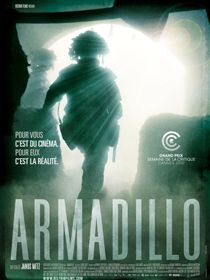


DOC Discussion/ 8

Comments on the Doc Discussion have been posted on facebook as well. They take different directions. Producers Marie Olesen, Scotland and Sinisa Juricic, Croatia characterise the pitching as “a fool’s game” and “a showcase of big ego’s from the other side of the table… not a useful tool for film financing”, wheras several acknowledge the contribution of Philippe van Meerbeeck. Mark Daems, producer from Belgium writes: “I’d like to click the ‘like’-button, but in fact I don’t like that Philippe is so close to the truth”.
The debate can, and should, go on but in this round the idea is now to ask Louise Rosen and Mikael Opstrup to make some closing remarks that could very well deal with: What can be done, what’s next? Their texts will be brought asap, before that you may want to read what others have to say:
Simon Kilmurry, very active commissioning editor for POV in the US writes: Hi Tue, This is a fascinating discussion, and Louise (Rosen) and Mikael (Opstrup) make some interesting and troubling observations. Another part of the problem, I think, is the sheer volume of work being produced. We are seeing twice as many films as we did 10 years ago. But resources and slots have not increased commensurately. While we have a few more slots at POV, overall broadcast space has diminished. Thanks for sharing this.
Kilmurry kindly refers to two articles about “The Fate of Documentary”, the first one, with that title, to be found in New York, August 16, written by Leslie Stonebraker – to be responded by guest blogger at POV, Heather McIntosh. I quote the end words of her article, but read both articles in full length, through sites below:
“… Documentary is an amazingly flexible, versatile and innovative form, and its makers and believers have been remarkably creative in applying it and bringing it to audiences. The mainstream presence is new, and it will become part of the documentary history as we move through the changes over time. The mainstream presence certainly expands the documentary conversation, but it is such a small part of the rich form with an even deeper and more nuanced history. Not to mention, an even deeper and more nuanced present.”
Photo: Armadillo, Janus Metz, recently broadcast on POV.
http://www.nypress.com/article-22735-the-fate-of-documentary-film.html
http://www.pbs.org/pov/blog/2011/08/the_fate_of_documentary.php